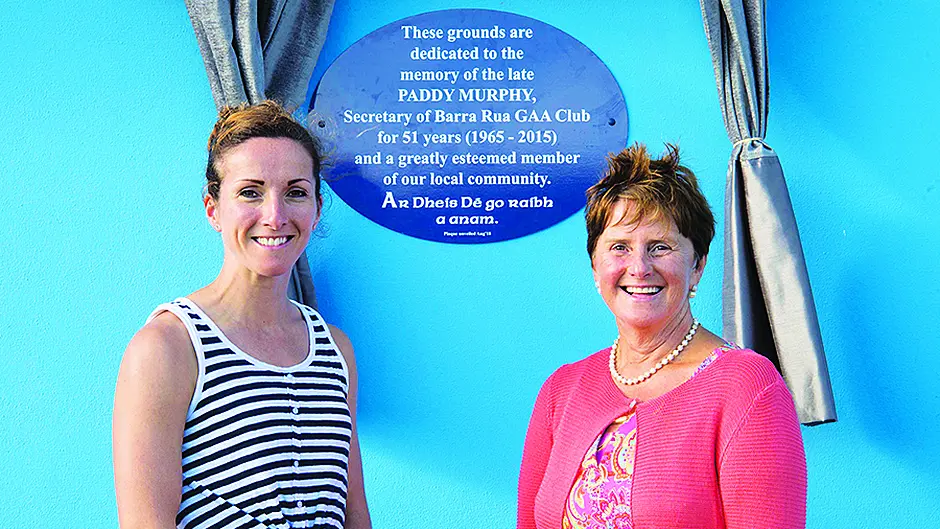Underperforming is a team's worst nightmare but it needs to be addressed quickly
Underperforming is a team’s worst nightmare but it needs to be addressed quickly
NO team or individual goes into a game thinking they are going to play badly. That’s a negative frame of mind that we try desperately to obliterate from our mindset.
But sometimes no matter how often you keep telling yourself that you need to run faster, or you need to be stronger on the ball or you cannot mess up the next free, unknown to yourself, you have automatically allowed the negativity to seep into your head.
It’s frustrating and cruel and knocks you like a punch to the stomach. While you try to fight back, sometimes the game can pass you by and you are left feeling sick and exhausted alongside your teammates who feel exactly the same.
The mind is a powerful thing. You can train like professionals all year long, endure the hard slog of winter training by running up hills that seem never ending, and you can do the extra gym sessions that will make you stronger, but when the mind is not thinking of all the good you and the team can do, it can seem like a waste of time.
And it all boils down to one game that can make or break you, the championship knockout or the All-Ireland final. It doesn’t matter what level you play at, there lies universal feelings of hurt and heartbreak on underperforming and not reaching your goals for the year.
Our club in Middletown, Armagh is currently going through a bad patch when it comes to games. Our trainings are going very well, the morale is positive and we have a strong panel that should be performing better at this stage of the competition.
We narrowly beat Ballymacnab by a point in the first round, and while it was a victory, it felt like a loss, as we didn’t even reach 50 per cent of our potential.
Winning is underwhelming when you play to a substandard. Not only are you disappointed in yourself, there’s disappointment in your team, your management and your support network. And all of this negative energy can somehow knock your confidence if you let it fester. That is why it is so important to nip it in the bud, because underperforming doesn’t just happen for no reason and it can and will affect your whole campaign if you leave it.
So, what can a team do to get things back on track? Here are some of my simple but effective tips that I have learnt from playing both club and county over the years.
**********
Find your intrinsic motivation: Talk to yourself as a player and identify why you play the sport you play? What is the point? Do you play for your family and their happiness as well as yourself? Do you personally get a buzz from lining out with your club colours and feel pride in doing so?
You need to identify what is the personal reward you receive that gives you so much satisfaction in playing. Following this, the extrinsic rewards may come but only if there is an awareness of what personally drives you and the team collectively.
**********
Keep training challenging, focused, enjoyable and worthwhile: Some people may say they hate the hard slog of training, but I absolutely love it and the harder the better. While most people wouldn’t openly admit this, I’m sure after reflection they will start to agree with me.
It leaves you with that feeling of satisfaction when you leave the field totally spent. It needs to be challenging, there are other teams who are training just as hard as you and with a clear focus by everyone for the whole session, this will then help your concentration in game situations.
You should also feel a want and desire to attend your training sessions. It shouldn’t feel like a chore. If you feel as a player that you don’t feel any of this in your trainings, then a talk amongst players and management can only help.
**********
Organise a players’ meeting: Having played with Cork seniors for over 12 years, we would often experience a period when there were problems in our performances or troubles behind the scenes.
I can’t stress enough how valuable meetings amongst all players can be.
It allows every player to have a voice, something that is often not possible in front of management. It also unveils stresses or worries that players may have but were too afraid to say.
The beauty of it is that it remains anonymous among the players so people do feel liberated to voice what is bothering them.
It’s important that someone leads the meeting because there will often be periods of quiet and many can lose their trail of thought. You may find that these meetings can go over the time you have allocated but use this as a positive and report back to management if there are certain tweaks that need to be made in their approach going forward.
The players’ voice can never be underestimated, it’s a powerful tool and a vital and respectful two-way system of communication between players and management.
**********
Play more challenge games and get your confidence back: The best way to move on from a bad game is to play a great game. I remember coming off the field after many games crying because of how I played despite winning that game! The team may have played well overall but I became consumed with myself and let it knock my confidence.
If this is how I am feeling, then there will be others on the team who feel the same and collectively over time this can affect the whole team-play.
The best way to shake off the doubts and fears is to play another game as soon as possible with a positive mental attitude. Learn from the mistakes of past games and work on rectifying it. Encourage all your team with a positive vocabulary. They say it takes four positive thoughts to dissipate one negative. It makes sense to keep it upbeat on the field of play.
**********
Set/reset goals and allow players to know their worth: Setting goals for performance is a useful tool for all teams to use and it’s important to set goals for each game you play. Example: if the other team score, we must ensure we respond by getting the next two scores.
Don’t overburden players with too many as this will become a distraction.
By setting goals it will become a clear focus for the team and management. Players also need to feel valuable within the team so any means of communicating both verbally and written can never be underestimated.
Team bonding can also encourage players to feel more wanted within the panel. The aim should be to create a sporting ‘family’ of players who enjoy being around each other. If teams are happy then this will translate onto the field.










